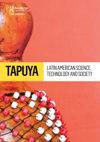前方的道路:对哥伦比亚生物多样性在制定生物经济政策中的价值的叙述和想象
IF 1.2
Q2 HISTORY & PHILOSOPHY OF SCIENCE
Tapuya: Latin American Science, Technology and Society
Pub Date : 2022-07-05
DOI:10.1080/25729861.2022.2059137
引用次数: 1
摘要
在哥伦比亚,该国的生物多样性已被置于其生物经济政策的核心。STS学者将生物经济分析为所有权和生物材料的产生、商品化和销售。然而,发展中国家很少注意到生物勘探活动,更不用说将生物勘探纳入生物经济政策了。此外,关于生物价值的叙述在支持国家建设中的作用,或者自然、国家和公民之间的关系,仍然没有得到充分的研究。基于对政策制定委员会的采访和实地考察,我认为基因组技术的使用支持了关于生物多样性价值及其价值增值的假设;这使得进一步的价值创造过程不受质疑。哥伦比亚需要追求更好的未来,这说明了近几十年来关于生物多样性价值的假设是稳定的。正确的政治气候为哥伦比亚领土的生物考察和对社会契约的重新思考提供了动力,这个国家正在寻求治愈与武装游击队的内部冲突的创伤- -成为一个更加多样化和有凝聚力的社会。最终,生物多样性的知识嵌入了对自然的假设,支持了对国家应该如何的社会技术想象。本文章由计算机程序翻译,如有差异,请以英文原文为准。
The road ahead: narratives and imaginaries of the value of biodiversity in shaping bioeconomy policy in Colombia
ABSTRACT In Colombia, the country’s biodiversity has been put at the heart of its bioeconomy policies. STS scholars have analyzed bioeconomy as the generation, commodification, and sale of ownership and biological material. Nonetheless, little attention has been given to bioprospecting initiatives in developing countries, let alone the incorporation of bioprospecting in bioeconomy policy. Further, the role of narratives about the value of the biological in supporting nation-building, or the relationship between nature, state, and its citizens, remain understudied. Based on interviews and fieldwork in policymaking committees, I argue that assumptions about biodiversity’s value and its valorization are supported by the use of genomic technologies; this allows further processes of value creation to remain uninterrogated. The need for Colombia to aspire to better futures accounts for the stability of assumptions about biodiversity’s value in recent decades. The right political climate has generated momentum for biological expeditions of Colombia’s territory and the rethinking of the social compact, in a country seeking to heal the wounds of an internal conflict with armed guerrillas – to become a more diverse and cohesive society. Ultimately, knowledge of biodiversity embeds assumptions of what nature is for, supporting a sociotechnical imaginary of how the country should be.
求助全文
通过发布文献求助,成功后即可免费获取论文全文。
去求助
来源期刊

Tapuya: Latin American Science, Technology and Society
Social Sciences-Social Sciences (all)
CiteScore
1.60
自引率
0.00%
发文量
39
审稿时长
19 weeks
 求助内容:
求助内容: 应助结果提醒方式:
应助结果提醒方式:


